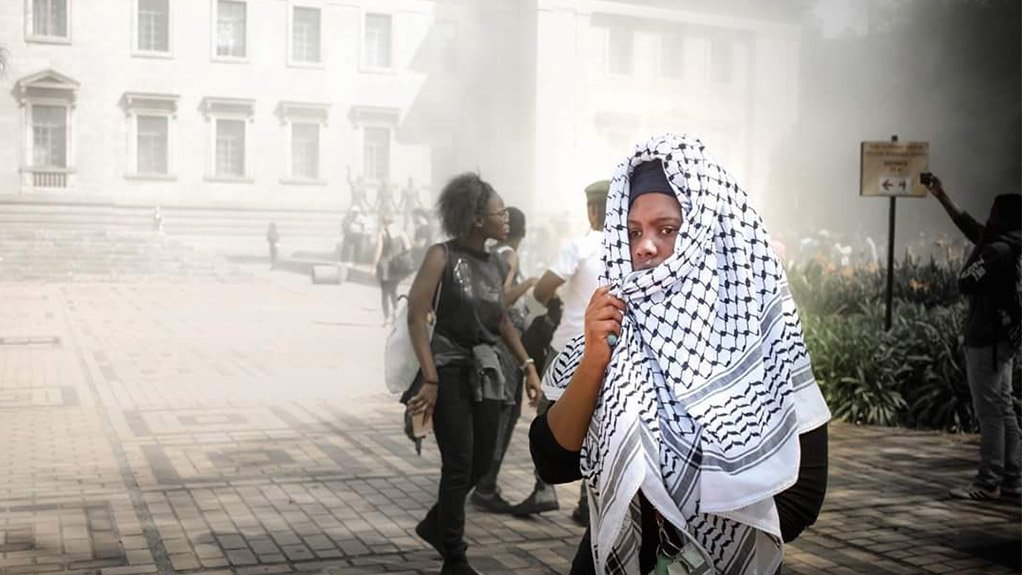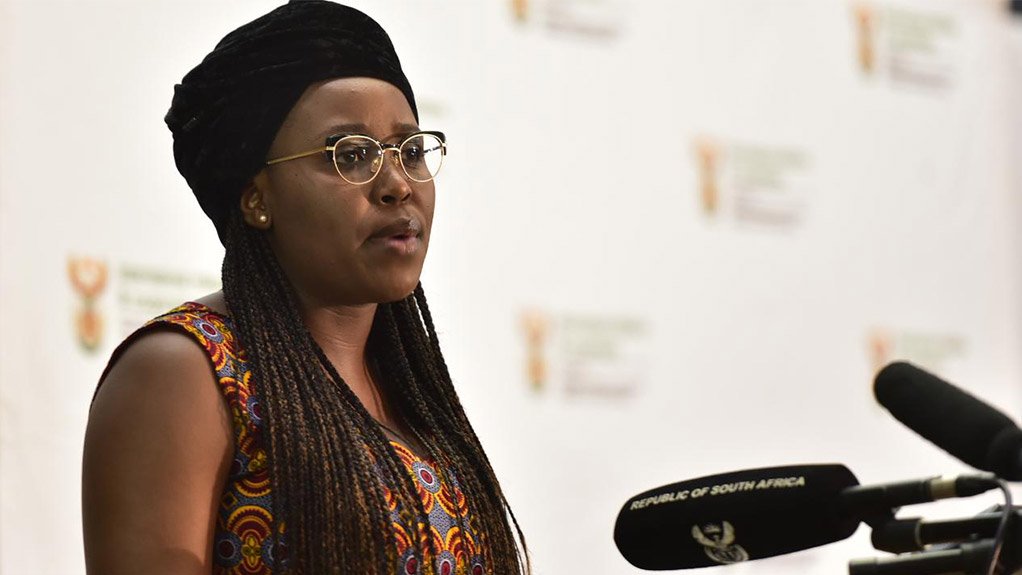Written by Nompendulo Mkatshwa & Omhle Ntshingila
Of late I have been reflecting on the intensely violent state of affairs in our country and its communities.
Every morning we wake up to news on our televisions, broadcasts on our WhatsApps, threads on social media about some sort of violent event that has occurred in our society. This is to the point where every time an image pops into your messages you feel a bit anxious as you literally anticipate the worst. It feels as though violence has become the order of the day.
The one thing that we ought to understand is that the violence that we experience is not only a physical one. The system in itself is violent in many ways and violence manifests itself in many ways both covert and overt.
Our societies experience violence every day, every hour, every minute, every second:
Through rape and sexual abuse;
Through the justice system that continues to be violent towards women and black bodies as we have recently noted in the case of Cheryl Zondi, whom we do believe;
Through the police system that continues to be violent to those most marginalised by this system, being students, youth, women and black bodies as seen in the Must Fall Movements, End Outsourcing, Westbury and Total Shut Down Protests;
Through the education system where teachers are violent towards learners, learners towards teachers and learners towards learners;
Through the work place, looking at the private sector and how it continues to be violent and exploitive towards young professionals, black bodies and women;
Through social media that violently defamates the characters of individuals with a prejudice towards women;
And through the media that also continues to be violent towards black voices and voices of women.
These are but a few spaces that remain violent towards women, children and marginalised bodies.
I want to look into the police force as a space of violence. I want to focus on it primarily because of its intended role to address violence in society. My interest is also heightened by my recent observations of the Westbury protests.
Now, as a young black woman I am terrified of the police in our country; in sharp contrast to how growing up they were presented to us as our supermen. With this in mind I decided to have a conversation with the former Deputy President of the Wits University, Student Representative Council (SRC) and former Fees Must Fall leader, Ms Omhle Ntshingila on her perceptions and experiences of the police force.
When I asked on her perceptions of the police force growing up she said: “From the time my mom taught me to dial 10111 as a child in cases of emergency or attack, my perception of the police from a young age was that they instilled law and order but mostly protection from the evils of this world. There was a sense of trust that came with seeing them around my community or school grounds.”
Ms Ntshingila’s perceptions of the police changed regressively as she grew older and witnessed various things in her community. When she moved to Johannesburg for university she thought that the conduct of police would change. She thought surely in a big city like Johannesburg police would be more professional; however, that was not the case.
Interacting with the police
A great part of Ms Ntshingila’s role during Fees Must Fall entailed on-going conversation with SAPS with ‘regards to being on the road, marching from one point to the next and keeping the students safe from being harmed unnecessarily within and out the University space’.
Ntshingila says: "I always spoke to SAPS through the commander in charge or allocated to the Wits FMF strike specifically. I always contacted the commander in the morning before the day starts and we would debrief in the evening, and inform him of our plans for the next day".
Ms Ntshingila recalls an attempt to find common ground in the protests of 2015, however recalls 2016 as a totally different experience. Here are some of the highlights of the conversation we had.
Meeting Common Ground
‘2016 FMF was very different in the sense that common ground was never reached. I suspect this was because SAPS stationed a different division within their department best known as the TRT (Tactical Response Team), which was closed off a lot to negotiation, interacting with students or even university staff. If we would call for route/activity meetings with SAPS they wouldn’t attend the meeting; then later threaten student leaders with arrest or violence in the instance of leaving campus. It was hard negotiating with the TRT to the point of useless, and it was very risky due to their aggressive nature’. – O.Ntshingila
Sticking to negotiated agreements
‘In 2016, things got very tense and hostile, in the sense that we would make agreements during meetings with SAPS and soon as we leave campus the police would start shooting; using violence to demoralize students from protest or even coming out of their rooms. We saw a different kind of violence on campus, where police would shoot at students in areas where we were allowed to protest, residences and other student spaces. Trust between students and SAPS was completely non-existent to the point where communication was never clear, as there were too many structures to go through within SAPS just to get permission to march from Wits University to Constitutional Hill’. – O.Nsthingila
The question for me here then becomes, is there an understanding by the police of how to respond in time of crisis? Or is the means of response merely suppression? Suppression of views is not the key to solving the core-root of the issues we are faced with as a society.
Being a young black woman in your role
‘The police commander always made me aware of my status in society by referring to me as “ngane” (child). I knew that already he viewed me as his subordinate due to the fact that I was young, zulu and a woman. I always knew that I had to be a lot more assertive in my speech, my demands and requests from him. At first the SAPS commander was aiming to micro-manage me by manipulating me with ageism mixed with patriarchy, but with my resilient gentle spirit I had to teach him that I was his colleague not his child. The SAPS commander within a week went from “Ngane” to ‘Sis Omhle”. Even though his staff still treated me as less of a leader than the men I led with’. – O.Ntshingila
I then asked Ms Ntshingila what her perceptions of the police were now. She said that the SAPS still operated like the old guard and did not represent ideals of the Batho Pele vision. She said theirs was not to assist in ensuring peaceful and successful protest in a democratic country but to instil fear and provoke violence that resulted in a traumatised university community. ‘The SAPS operates more like a gang than a state apparatus, it uses its training to bruise society further’.
As the conversation moved to ‘what now?’ Ms Ntshingila and I agreed that, ‘there is a lot that is still to be done in terms of public order policing and training police staff to respond humanly and with Ubuntu in certain situations, especially in regards to our communities because of the historical relationship South Africa has with protest action’. We agreed that when violence becomes the medium of instruction in society, so will the results of society become violent hence the high statistics of all sorts of violence seen in South Africa.
My view is that we have a police service that has not been rehabilitated from the posturing of the Apartheid police. I am equally of the view that our police service is a product of the community it comes from. So, when I look at how the police handled the Must Fall Movements and I look at how the recent protests in Westbury and Cape Town were addressed there are similarities to the images of 1976. There is absolutely nothing beautiful about that. I expect a police service existent in a democratic South Africa to reflect that of a democratic South Africa, where we amplify our democracy by allowing for a million voices to speak and be heard, allowing for legitimate contestation of views without suppression, allowing for healthy negotiation and fruitful resolution. But this is not what we see on the streets of South Africa.
I thus propose that perhaps our police service be trained on understanding the psychology and sociology of communities, societies and people. I propose that our police service be made to understand their role in a democratic South Africa; that perhaps the training that is provided by DIRCO for student leaders on Conflict Negotiation and Resolution be provided to our police force. And by that, I do not mean the leadership of the units but the actual ground forces who shoot the bullets, throw the grenades and teargas and unleash water-canons on already vulnerable bodies.
Written by Nompendulo Mkatshwa, a BSc Geography Graduate from University of the Witwatersrand, PGCE Candidate University of South Africa, Former President Student Representative Council Wits, Former South African Students Congress Chairperson at Wits and Former Deputy Chairperson of Wits ANC Youth League. With contribution from former Deputy President of the Wits University, Student Representative Council (SRC) and former Fees Must Fall leader Omhle Ntshingila.
Nompendulo Mkatshwa is a regular Polity columnist.
EMAIL THIS ARTICLE SAVE THIS ARTICLE ARTICLE ENQUIRY
To subscribe email subscriptions@creamermedia.co.za or click here
To advertise email advertising@creamermedia.co.za or click here













